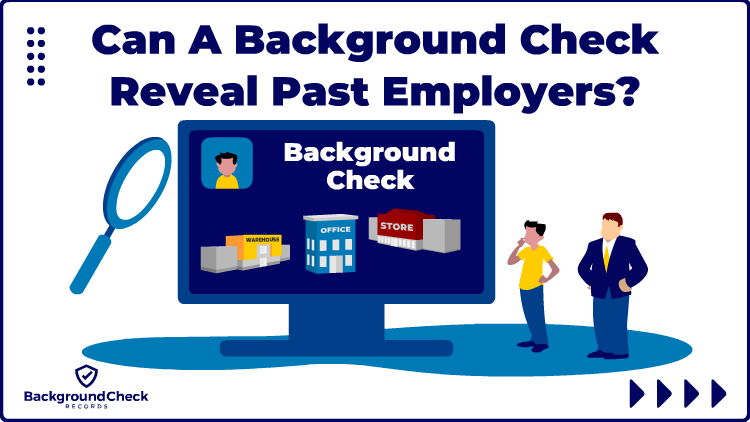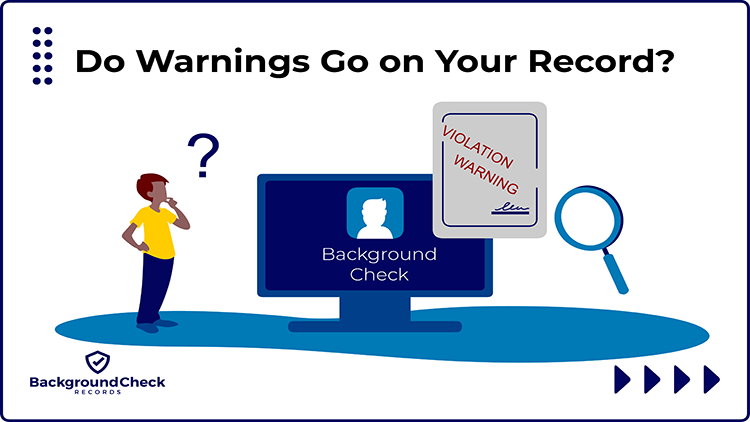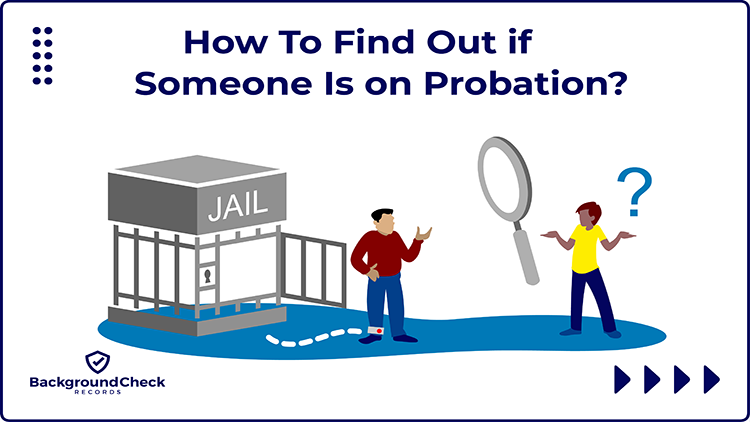Can Background Check Reveal Past Employers? Yes & Here Is How
A background check can reveal past employers. Typically, previous employment details are included in background checks. However, whether employment history verification is conducted depends on various factors, such as the type and thoroughness of the background check, the purpose of the screening, and state and federal regulations.
Luckily anyone can use the form here to see if past employers show up in their state, and what information is shown too.
In addition, here-in below is how to determine what types of background checks show past employers, and an overview of what information past employers can reveal about you such as: If you were fired, reasons for termination, performance reviews, disciplinary actions, priors years drug test information, attendance records and more.
Employment history can play a huge role in the hiring process so be sure to understand what past employers can say, the process new employers need to go through to legally verify prior employment, and what actions applicants can take against potential employers if they obtain past employment information illegally.
Is Employment History Public Record?
An employment record is everything pertaining to that person and the positions they have held or currently hold. This includes salary information, years with the agency or business, job title, benefits, and other important data.
This is not, however, typically considered public record since the information is owned by the company or agency that employed the worker.
Therefore, certain elements of employment history are not as readily accessible to the public as items that are considered public record such as criminal history, voter registration or property ownership. So regarding employment history, public records may not be the go-to place for information.
There are some exceptions, including when an agency checks a person’s social security number through the Social Security Administration to make sure they are eligible to work in the country.
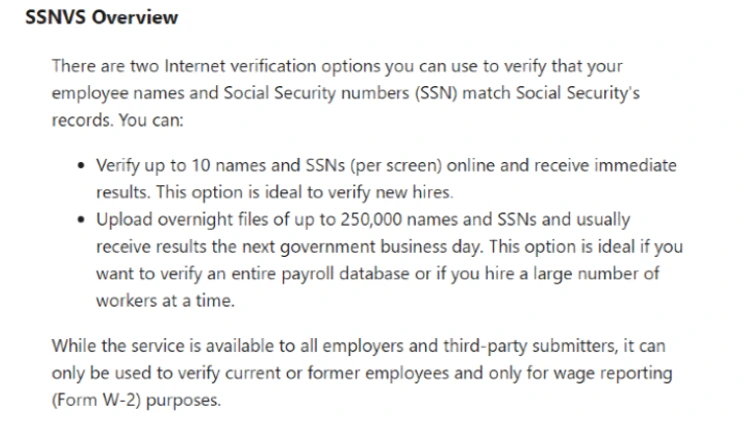
This search will reveal a person’s entire employment history, but not details that are owned by the company itself.1
Understanding if a Background Check Displays Employment History and Past Employers
A background check typically reveals past employers at specific stages. In a routine background check, the focus is primarily on criminal history to identify disqualifying offenses, or on credit history for roles involving financial responsibilities. Information such as education and employment history isn’t usually part of the standard screening process.
Employment verification usually involves the agency needing the background check to do some leg work on their own. This includes calling or emailing previous employers to verify if the person’s information on an application or resume is accurate, and to get any details that are legally permissible to pass. State laws limit what a previous employer can reveal in an employment history check.
What Does an Employment Background Check Reveal? What Shows Up on Employment Verification?
Employment verifications help future employers see past jobs held by a candidate. The information revealed on an employment background check depends on the level of the check and state laws that outline what a past employer may reveal to the person conducting the verification.
Items that may be revealed include disciplinary actions, awards, dates of employment and reason for termination.
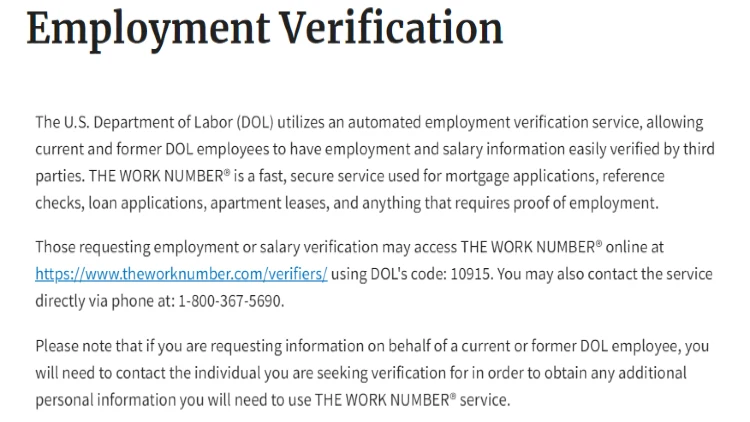
Background checks can uncover past employers for volunteer positions. Volunteer experiences should be listed on a resume as part of job history. Background checks for non-profit organizations can also verify employment history.
Moreover, background checks can potentially uncover previous employers even if the individual was fully hired but opted not to commence employment on the agreed-upon start date. If an individual underwent processing by an employer and was added to the payroll, this information might appear during employment verification, particularly when confirming the social security number, or it may be included in the credit history assessment if the position necessitates a credit report.
What Else Shows Up on Background Checks When Verifying Past Employers?
Most background checks are primarily focused on disqualifying offenses or criminal history when making hiring decisions; however, if employment history shows a pattern of jumping from one job to another without staying at an agency or business more than a few months, it can raise a red flag that the candidate may not be a reliable employee.2
What Can a Previous Employer Say During Employment Verification?
When doing an employment verification, some agencies want to know more than the dates a person was employed at the previous job. They may want to know what their job duties were, if there was any disciplinary action, salary range, or work ethics.
Human resource managers are limited by what they can disclose by company policy and state labor laws outlining what an employer can disclose.
The table below briefly explains state laws regarding what an employer can disclose:
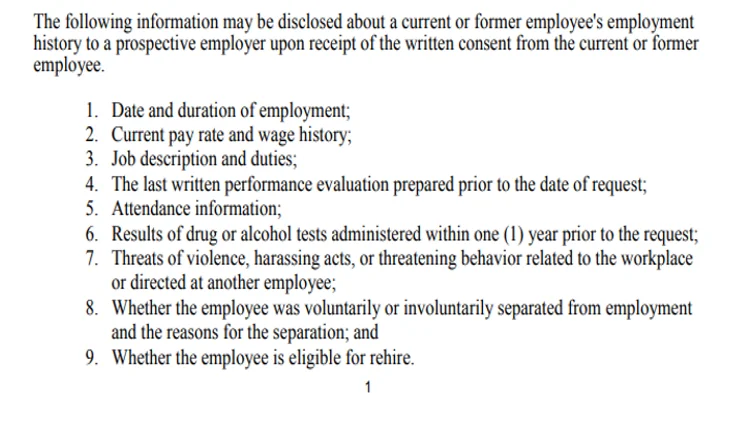
While there are no federal laws limiting what an employer may reveal about a prior employee, there are protections against discriminatory employment practices with information obtained during an employment verification.
The Equal Employment Opportunity Commission provides guidance to employers on how to conduct background checks and use the information obtained legally and fairly. This includes helping employers know when employment verification information can negatively impact a person’s chances when seeking a position.3
Can a Background Check Find Out If You Were Fired?
The inclusion of termination on your record is a possibility, yet its disclosure during an employment history check is not guaranteed. There are several factors that determine if, and when, being fired can be disclosed.
Certain state laws do allow a previous employer to reveal a person was involuntarily separated from employment, but information provided must be factual and without bias. For example, a person cannot reveal one employee was fired, but keep information that another was fired confidential because the individuals are different races.
EEOC guidance helps managers avoid discriminatory practices in revealing employment history.4
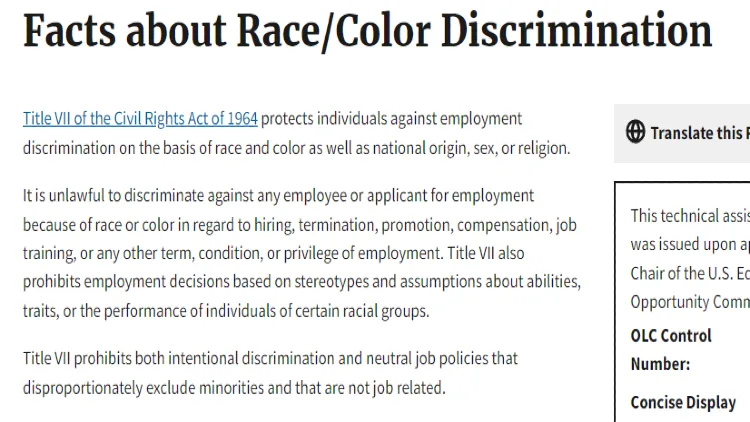
The states below allow previous employers to disclose when a person was fired from a job:
- Alabama
- Arizona
- Arkansas
- California
- Colorado
- Connecticut
- Delaware
- Florida
- Indiana
- Iowa
- Kansas
- Maryland
- Massachusetts
- Minnesota
- Mississippi
- Missouri
- Montana
- Nebraska
- Nevada
- New Hampshire
- New Jersey
- New York
- North Carolina
- South Carolina
- Texas
- Vermont
- Virginia
- Washington
- West Virginia
- Wisconsin
In these states, previous employers have immunity from lawsuits for disclosing a person was fired from a job. In some states, the disclosure must be in writing and the applicant must be informed that the termination will be revealed in an employment verification check.
What Type of Background Checks Reveal Past Employers?
Most background checks can include some level of employment verification. The more comprehensive the screening, the more information revealed. The table below shows how employment verification is part of a different background check.
| Type or Level Background Check |
Employment Verification Included? |
| Level 1 Background Checks (name-based) |
Yes, single employment verification |
| Level 2 Background Check (fingerprint-based) |
Yes, but focuses more on criminal history |
| Level 3 Background Check |
Yes, up to the last three employers in mosts cases |
| Level 4 Background Check |
Yes, similar to level 3 checks but more comprehensive |
| Security Clearance Investigation |
Yes, this also includes one-on-one interviews with employers, coworkers, family, friends and neighbors to determine suitability for a security clearance for a position pertaining to national security. |
| Bulk Background Checks |
Yes, bulk background checks can include employment and education verification but are primarily concerned with public records. |
How Searching Work History Should Be Done & How To Verify Employment History Legally
A hiring manager or small business owner has a responsibility to make sure employment verification is being done legally and ethically. Below is a guide to conducting a work history search legally and effectively.
Step 1. Review applications to make sure there is a statement informing applicants what will be searched in a background check. If employment verification is not listed, make sure the forms are updated to include employment verification.
Employees should list all previous jobs held on the application or explain gaps in the application or resume where no employment appears.
Step 2. After narrowing down applicants for a position for consideration, review company hiring policy and state laws to see when employment verification can occur. In most cases, there are no limits to when a person’s employment can be searched.
However, most companies will not verify work history until a person has been offered a position or interview.
Step 3. Make a list of questions to ask the previous employer. For example, ask about dates of employment, job performance and if the person is eligible for rehire. Make sure the questions are in compliance with state labor laws. The following states have passed statewide laws preventing asking about salary history:
Step 4. Contact the previous employer. This can be done via email, telephone or by requesting a previous employer fill out a form or survey online to verify a person’s employment.
Step 5. Hiring managers can also see employment history when verifying a person’s social security number. This will just show dates and place of employment but can be a way to see if there are any gaps in a person’s application or resume.6
Step 6. When running a credit report as part of the verification process, understand it can contain employment history as well; however, this may not be a complete employment history. Background checks must be in compliance with the Fair Credit Reporting Act.
Candidates for positions can also check their own employment history to make sure they are not omitting information on an application or resume.
Employment history can be requested through the Social Security Administration by signing up for an account or the Internal Revenue Service for past tax records for a complete list of places worked. IRS transcripts are typically free of charge, and online access of SSA records are also free to the user.
Inclusion of tax records in a background check depends on the job’s financial responsibilities or level of trust. Understanding what these records reveal regarding employment is crucial for positions involving money handling or significant responsibility.
Employees can additionally complete a work history report form through the Social Security Administration to obtain a comprehensive work history record. This process is crucial for ensuring accurate middle name and full name verifications, when acquiring employment history from the right individual. Forms can be mailed to the following address:
SSA (Social Security Administration)
Post Office Box 33011
Baltimore Maryland 21290-33011
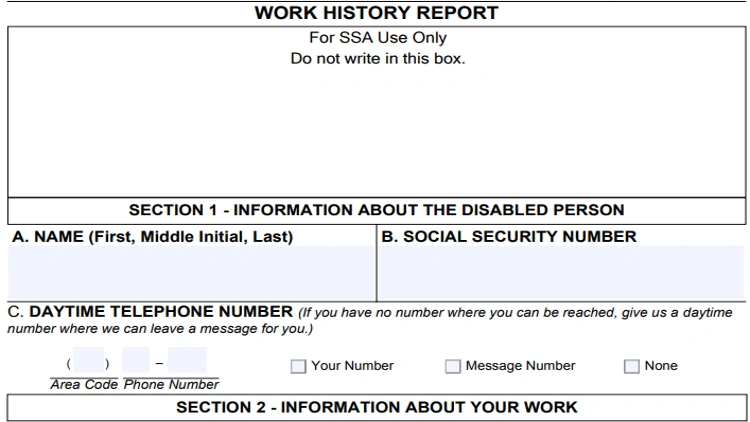
Costs for records are $100-144 based on whether the record is a certified or non-certified copy.7
After the employment verification is complete, the hiring manager makes a decision whether to complete the hiring process or rescind the offer.
What To Do If an Employment Verification Fails & What To Do if It’s Done Illegally?
Background checks have the potential to uncover past employers even if a person has omitted a former job or provided false information on an application or resume. Omitted jobs may appear on background check reports, particularly when the investigation delves deeply into a person’s history.
If a person forgot to list a job on background check consent forms, it can also show up. These can lead to failing the employment verification portion of the screening.
When an employment verification fails, there are some things both the employer and the job candidate can do before the job offer is completely off the table.
Employers can reach out to the candidate for further clarification or explanation when there is an inconsistency in the application or resume and the information provided by the previous employer. This can help clarify errors that may have occurred either with the application process or the verification process.
Employers have the option to rescind the job offer if it is revealed a candidate was lying on background check forms such as consent to run a screening or applications where the applicant’s signature gives consent to run a background check.
Hiring managers can also hire third-party sites to run an additional employment verification to make sure the information they received from the previous company is accurate.
If the information provided violates laws in the state where the verification occurred, or the information is used in an unlawful manner, job candidates have a couple of options. They can report the violation to the labor department in their state when information is disclosed in violation of the labor laws.
The table below lists the department of labor link for each state.
The state department or division of labor offers guidance to employers and assistance to employees concerning whether background checks can reveal past employers when making hiring decisions.
When information is used in a discriminatory manner, the candidate can file a complaint with the EEOC, and can hire an attorney to help with protecting their rights. To file an EEOC complaint, the candidate would need to do the following:
- Gather the necessary information for the complaint including:
- Information about the individual who discriminated against the candidate.
- Information about the employer that discriminated against the candidate.
- Date or dates of the incident.
- Brief explanation of what occurred (such as information was used in a biased manner in violation of Title VII of the Civil Rights Act of 1964).
- Make sure the complaint is filed within the required timeframe (typically 180 days from the date of the incident).
- Submit the complaint in person at the nearest EEOC office. Candidates can find the nearest EEOC field office by calling 800-669-4000 or online here.
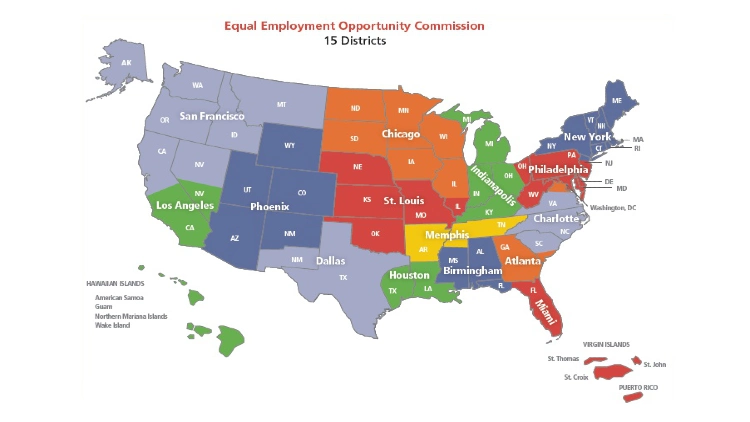
Candidates can also contact the previous employer themselves to make sure contact with the new employer is successful and to determine what information is being supplied.
It is important for candidates to make sure their information is as complete and accurate as possible when applying for a job, including credit history which may show previous employment information.8
Verifying employment is an important part of a background check for hiring managers. This gives a glimpse into the type of employee a person will be if they are hired. Understanding whether background checks can reveal past employers aids both the candidate and the potential employer in effectively completing the process.
Frequently Asked Questions
Do You Have To List Every Job On Your Resume?
While you will have to explain all your work experience, in some instances you can only highlight those positions which directly relate to the job for which you are applying. A targeted resume is often preferred for professional, career-level positions. When using a targeted resume, be prepared to explain any gaps that may appear where you worked in an unrelated field or a job that did not have transferable skills.
When Do Background Checks Show Employment History?
Background checks for employment purposes or credit reports for tenant screenings can reveal employment history as part of the screening process.
Can My Old Employer Find Out Where I Work Now?
Yes, your old employer can find out where you are working now; however, you are not legally obligated to disclose where you are working except under certain circumstances. For example, if you worked for a company and left for one of its competitors, there may be ramifications if you disclose trade secrets or other protected information of the previous company.
Can Someone Run A Background Check Without My Permission To Verify Employment?
Employers must get written consent to run a background check on candidates, including employment verification checks.
1 Doyle, A. (2022, February 13). How to Find Your Employment History. The Balance. Retrieved November 13, 2022, from <https://www.thebalancemoney.com/how-to-find-your-employment-history-2060696>
2 What Is Job-hopping? Pros and Cons. (n.d.). Indeed. Retrieved November 13, 2022, from <https://www.indeed.com/career-advice/starting-new-job/job-hopping>
3 Hiring Practices That Have a Negative Effect on Certain Applicants. (n.d.). Equal Employment Opportunity Commission. Retrieved November 13, 2022, from <https://www.eeoc.gov/employers/small-business/hiring-practices-have-negative-effect-certain-applicants>
4 Facts about Race/Color Discrimination | U.S. (1997, January 15). Equal Employment Opportunity Commission. Retrieved November 13, 2022, from <https://www.eeoc.gov/laws/guidance/facts-about-racecolor-discrimination>
5 Be it enacted by the People of the State of Maine as follows:. (n.d.). Maine Legislature. Retrieved November 13, 2022, from <https://mainelegislature.org/legis/bills/getPDF.asp?paper=SP0090&item=3&snum=129>
6 Verifying Social Security Numbers. (n.d.). Social Security. Retrieved November 13, 2022, from <https://www.ssa.gov/employer/verifySSN.htm>
7 Work History Report. (n.d.). Social Security. Retrieved November 13, 2022, from <https://www.ssa.gov/forms/ssa-3369.pdf>
8 Luthi, B. (2020, November 14). What to Know About Employment and Your Credit. Experian. Retrieved November 13, 2022, from <https://www.experian.com/blogs/ask-experian/credit-education/life-events/employment/>

